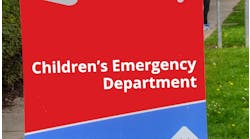In November 2015 the American Association for Cancer Research (AACR) launched a registry initiative to aggregate participants’ clinical-grade genomic sequencing data to improve patient treatment decisions and catalyze clinical and translational research. Now AACR has announced the first public release of cancer genomic data aggregated through the initiative.
The data set for AACR’s Project Genomics Evidence Neoplasia Information Exchange (GENIE) includes nearly 19,000 de-identified genomic records collected from patients who were treated at eight international institutions, making it among the largest fully public cancer genomic data sets released to date.
The release includes data for 59 major cancer types, including data on nearly 3,000 patients with lung cancer, more than 2,000 patients with breast cancer, and more than 2,000 patients with colorectal cancer. The genomic data and a limited amount of linked clinical data for each patient can be accessed via the AACR website or downloaded directly from Sage Bionetworks.
“We are excited to make publicly available this very large set of clinical-grade, next-generation sequencing data obtained during routine patient care,” said Charles Sawyers, M.D., Project GENIE Steering Committee chairperson, in a prepared statement.
AACR said there are many ways in which the data can be exploited to benefit patients in the future, including through the validation of gene signatures of drug response or prognosis; the ability to identify new patient populations for drugs previously approved by the U.S. Food and Drug Administration; the expansion of patient populations that will benefit from existing drugs; and the identification of new drug targets and biomarkers.
Sawyers, who is also chairperson of the Human Oncology and Pathogenesis Program at Memorial Sloan Kettering Cancer Center in New York and a Howard Hughes Medical Institute investigator, added, “These data were generated as part of routine patient care and without AACR Project GENIE they would likely never have been shared with the global cancer research community. We are committed to sharing not only the real-world data within the AACR Project GENIE registry but also our best practices, from tips about assembling an international consortium to the best variant analysis pipeline, because only by working together will information flow freely and patients benefit rapidly.”
AACR stressed that the newly released data are fully de-identified in compliance with the Health Insurance Portability and Accountability Act (HIPAA). They are derived from patients whose tumors were genetically sequenced as part of their care at one of the eight international institutions that participated in the first phase of AACR Project GENIE.
The eight institutions participating in AACR Project GENIE phase 1 are:
• Dana-Farber Cancer Institute, Boston;
• Gustave Roussy Cancer Campus, Paris-Villejuif-France;
• The Netherlands Cancer Institute, Amsterdam, on behalf of the Center for Personalized Cancer Treatment, Utrecht, The Netherlands;
• Sidney Kimmel Comprehensive Cancer Center at Johns Hopkins, Baltimore;
• Memorial Sloan Kettering Cancer Center, New York;
• Princess Margaret Cancer Centre, Toronto;
• University of Texas MD Anderson Cancer Center, Houston; and,
• Vanderbilt-Ingram Cancer Center, Nashville, Tennessee.
To expand the AACR Project GENIE registry, the consortium is accepting applications for new participating centers starting Jan. 5, which is a year sooner than originally anticipated. Any nonprofit institution that meets certain criteria can submit an application to become a project participant.


